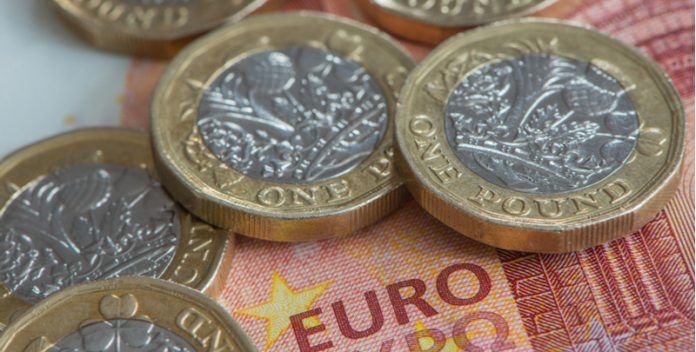- Brexit continues to drag on demand for the Pound (GBP) as the level playing field remains a sticking point
- Michel Barnier said in a private meeting that he still believes that a deal is possible.
- Euro remains buoyant after upbeat IFO sentiment data
- Covid numbers, particularly in Spain, France & Germany will be eyed in the absence of any high impacting data
The Pound Euro (GBP/EUR) exchange rate is drifting lower for a second day. The pair settled on Monday -0.2% at €1.0962, failing to push above the key €1.10 psychological level at any point during the session. At 05:15 UTC GBP/EUR trades just a few points lower at €1.0960.
The Pound has little to celebrate, with UK data in short supply and Brexit talks failing to make any progress. Talks will continue. However, the idea of a level playing field for businesses and state aid for businesses remains a serious stumbling block to talks progressing. According to officials close to the matter, the issue of state aid is the one that the European Commission is most concerned with and is also the one that the British government cares enough about that it could de-rail negotiations over them.
Even so, Chief EU negotiator Michel Barnier said behind closed doors that a deal is still possible.
In addition to Brexit, fears over a second wave are adding pressure to sterling. Boris Johnson warned businesses on Monday that a second wave in the Autumn is looking very likely, just as workers are preparing to go back to work.
The Euro was once again the star performer of the FX space. The German IFO Business Climate Index came in at 90.5 in July, firmer than last month’s 86.2 and also stronger than analysts’ expectations of 89.3. This means that forms gave a better assessment of the current business situation and are more optimistic regarding the outlook over the coming 6 months.
The rise in the IFO figure comes following upbeat PMI data last week with the service sector activity advancing to 56.7 on the index. The figure 50 separates expansion from contraction.
Today the Eurozone economic calendar is quiet meaning that the Euro could be more sentiment and covid driven, particularly as fears of a second wave of coronavirus rise in Spain, France and Germany.





